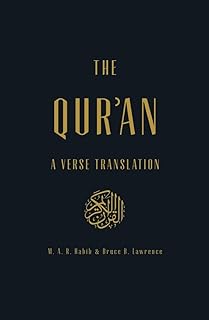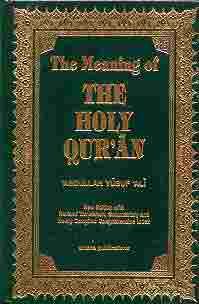ALLAH'S (SWT) COMMAND TO WITNESS AL-QIYAMAH (THE RESURRECTION)
I do call to witness the Resurrection Day; And I do call to witness the self-reproaching Spirit.(Qur'an 75:1-2)



A deeper and more nuanced understanding of Surah 75:1-2, "I do call to witness the Resurrection Day; And I do call to witness the self-reproaching Spirit," reveals a profound declaration of an epochal witness rather than a single-day event. The Arabic word for "witness" (aqsama) in this context can be understood not just as a legal testimony but as a call to observe, to be aware of, and to bear witness to a continuous and unfolding reality. Thus, Allah (SWT) is not simply swearing by a future event but is calling upon humanity to witness the dawning of the Resurrection Age, a period of profound spiritual and moral transformation..
Surah Al-Qiyamah (The Resurrection) 75:1-2
1. I do call to witness the Resurrection Day;2. And I do call to witness the self-reproaching Spirit.
3. Does man think that We cannot assemble his bones?
4. Nay, We are able to put together in perfect order, the very tip of his fingers.
5. But man wishes to do wrong (even) in the time in front of him.
6. He questions: "When is the Day of Resurrection?”
7. At length, when the sight is dazed
8. And the moon is buried in darkness
9. And the sun and moon are joined together that Day will Man say;
10. "Where is the refuge?”
11. By no means! No place of safety!
12. Before the Lord (alone), that Day will be the place of rest.
13. That Day will Man be told (all) that he put forward, and all that he put back.
14. Nay, man will be evidence against himself,
15. Even though he were to make excuses.
16. Move not thy tongue concerning the (Qur'n), to make haste therewith.
17. It is for Us to collect it and to promulgate it:
18. But when We have promulgated it, follow thou its recital:
19. Nay more, it is for Us to explain it:
20. Nay, (ye men!) but ye love the fleeting life,
21. And leave alone the Hereafter.
22. Some faces, that Day, will beam (in brightness and beauty)
23. Looking towards their Lord;
24. And some faces, that Day, will be sad and dismal,
25. In the thought that some backbreaking calamity was about to be inflicted on them;
26. Yea, when (the soul) reaches to the collarbone (in its exit),
27. And there will be a cry, "Who is a magician (to restore him)?”
28. And he will conclude that it was (the Time) of Parting;
29. And one leg will be joined with another:
30. The Day the Drive will be (all) to thy Lord!
31. So he gave nothing in charity, nor did he pray! -
32. But on the contrary, he rejected Truth and turned away!
33. Then did he stalk to his family in full conceit!
34. Woe to thee, (O man!), yea, woe!
35. Again, woe to thee, (O man!), yea, woe!
36. Does Man think that he will be left uncontrolled, (without purpose)?
37. Was he not a drop of sperm emitted (in lowly form)?
38. Then did he become a clinging clot; then did (Allah) make and fashion (him) in due proportion.
39. And of him He made two sexes, male and female.
40. Has not he, (the same), the power to give life to the dead?
surah 75:1-40 Al Qiyamah (The Resurrection)
Abdullah Yusuf Ali, The Holy Qur'n, Amana Corporation, 1989.
The Epochal Witness of Al-Qiyamah: An Academic Analysis of Surah 75:1-2
Table of Contents
I do call to witness the Resurrection Day; And I do call to witness the self-reproaching Spirit.(Qur'an 75:1-2)
Introduction
The concept of Al-Qiyamah, the Day of Resurrection, is a cornerstone of Islamic eschatology. For centuries, the dominant interpretation within the Muslim world has been that of a single, cataclysmic day of judgment when all of humanity will be resurrected to account for their deeds. This paper challenges this traditional view, arguing that such an interpretation is not only a misunderstanding of the Quranic message but also a fulfillment of the promise of Iblis (Satan) to mislead humanity. We will demonstrate that Surah 75:1-2, when understood in its proper context and in light of other Quranic verses and contemporary theological insights, points to an epochal, gradual unveiling of the Resurrection Age, a process that is witnessed not in a single day but over decades of lived history.
This paper will argue that Allah's declaration in Surah 75:1-2 is a call to witness an ongoing process of spiritual awakening and moral accountability, a process that is intrinsically linked to the "self-reproaching spirit" (al-nafs al-lawwamah). We will explore how this interpretation is supported by a deeper understanding of Quranic exegesis, the nature of divine will, and the very fabric of human consciousness. By re-examining the traditional narrative, we can begin to see how the promise of Iblis to "mislead them all" has been brilliantly fulfilled by reducing the profound, epochal reality of Al-Qiyamah to a single, future event, thus blinding many to the signs of the Resurrection Age that are unfolding before our very eyes.
The Traditional Interpretation of Al-Qiyamah and Its Limitations
The traditional and most widely accepted interpretation of Al-Qiyamah within Islamic theology is that of a final, single Day of Judgment. This eschatological event is understood as a cataclysmic end to the world, followed by the bodily resurrection of all humanity to be judged by Allah (SWT) for their deeds in life. This view is supported by numerous verses in the Quran and Hadith that describe the dramatic and terrifying events of this day. For instance, the Quran describes the sun being folded up, the stars falling, the mountains being set in motion, and the seas boiling over (Surah At-Takwir 81:1-6). These vivid descriptions have led to a deeply ingrained belief in a literal, single-day event that will bring about the end of time as we know it.
However, this paper argues that while these verses are undoubtedly true and significant, a solely literal and single-day interpretation of Al-Qiyamah is limiting and fails to capture the profound and multifaceted nature of the Resurrection Age. This narrow view, we contend, has inadvertently contributed to a spiritual and intellectual stagnation within the Muslim ummah, preventing a deeper understanding of the ongoing signs of the Resurrection and the awakening of human conscience in our contemporary world. The focus on a distant, future event has led many to overlook the immediate and personal relevance of Al-Qiyamah as a continuous process of spiritual reckoning and moral accountability.
This traditional interpretation, while providing a framework for moral conduct and a sense of ultimate justice, also presents several theological and philosophical challenges. It can lead to a passive and fatalistic worldview, where individuals are simply waiting for the end of the world rather than actively engaging with the signs of the Resurrection in their own lives and societies. Furthermore, it can create a sense of detachment from the Quranic message, as the verses about Al-Qiyamah are seen as referring to a distant future rather than a present reality. This is where the promise of Iblis to mislead humanity becomes particularly relevant. By reducing the profound, epochal reality of Al-Qiyamah to a single, future event, Iblis has effectively diverted attention from the ongoing spiritual battle and the signs of the Resurrection that are unfolding in our midst.
Re-interpreting Surah 75:1-2: The Epochal Witness
A deeper and more nuanced understanding of Surah 75:1-2, "I do call to witness the Resurrection Day; And I do call to witness the self-reproaching Spirit," reveals a profound declaration of an epochal witness rather than a single-day event. The Arabic word for "witness" (aqsama) in this context can be understood not just as a legal testimony but as a call to observe, to be aware of, and to bear witness to a continuous and unfolding reality. Thus, Allah (SWT) is not simply swearing by a future event but is calling upon humanity to witness the dawning of the Resurrection Age, a period of profound spiritual and moral transformation.
The second part of the oath, "And I do call to witness the self-reproaching Spirit" (al-nafs al-lawwamah), is the key to unlocking this epochal interpretation. The self-reproaching spirit, or conscience, is not a faculty that is activated only on the Day of Judgment. It is an intrinsic part of the human soul, a constant witness to our thoughts, intentions, and actions. As Maulana Maududi explains in his Tafheem ul-Quran, the self-reproaching soul is a "pointer that man is not merely an animal but a moral being" and is "an evidence of the life hereafter, which exists in man's own nature itself." [1] This innate moral compass, which reproaches us for our wrongdoings and inspires us towards good, is the very engine of the Resurrection Age. It is through the awakening and heightening of this collective human conscience that the signs of the Resurrection are made manifest.
Key Insight: The Self-Reproaching Spirit as Continuous Witness
The self-reproaching spirit (al-nafs al-lawwamah) is not dormant until the Day of Judgment but is an active, continuous witness within every human being. This internal moral compass serves as evidence of the ongoing nature of the Resurrection Age, challenging the traditional single-day interpretation.
This interpretation is further supported by the concept of gradualness in divine processes, as articulated by contemporary Islamic theologians like Sayyid Muhammad Husayn Tabataba'i. He argues that while God's command is instantaneous ("Be, and it is"), the manifestation of that command in the material world can be gradual. [2] Thus, the Resurrection, as a divine command, can be understood as a gradual, epochal process that unfolds over time, rather than a sudden, cataclysmic event. The signs of this gradual unveiling are all around us, in the increasing interconnectedness of humanity, the rapid advancement of knowledge, and the growing awareness of our collective moral responsibility for the planet and for each other. These are not just random historical developments but are, in fact, the signs of the Resurrection Age, the epochal witness that Allah (SWT) is calling upon us to observe.
The Role of Iblis: Misleading Humanity about the True Nature of Al-Qiyamah
The Quran is explicit about the promise of Iblis (Satan) to mislead humanity. In Surah Al-Hijr (15:39-40), Iblis declares, "My Lord, because You have made me err, I will surely make [disobedience] attractive to them on earth, and I will mislead them all, except Your chosen servants among them." [3] This promise is not a mere threat but a declaration of a strategic and ongoing campaign to divert humanity from the straight path. This paper argues that one of the most brilliant and insidious ways in which Iblis has fulfilled this promise is by obscuring the true, epochal nature of Al-Qiyamah and promoting a narrow, single-day interpretation.
"My Lord, because You have made me err, I will surely make [disobedience] attractive to them on earth, and I will mislead them all, except Your chosen servants among them." - Quran 15:39-40
By reducing the profound and continuous process of the Resurrection Age to a distant, future event, Iblis has effectively lulled many Muslims into a state of spiritual complacency. The focus on a single Day of Judgment has led to a neglect of the ongoing signs of the Resurrection and the urgent need for self-reflection and moral accountability in the present. This is a subtle but powerful form of misdirection, as it diverts attention from the immediate spiritual battle and the signs of the Resurrection that are unfolding in our midst. As the Quran warns, "O mankind, indeed the promise of God is truth, so do not let the worldly life delude you and do not be deceived by the Deceiver about God" (Surah Fatir 35:5). [4]
The traditional, single-day interpretation of Al-Qiyamah becomes a tool of Iblis when it is presented as the complete and only understanding. It creates a false sense of security, leading many to believe that they can delay their repentance and spiritual awakening until the final day. This is in direct contradiction to the Quranic emphasis on the imminence of the Hour and the constant need for vigilance and self-assessment. The "self-reproaching spirit" (al-nafs al-lawwamah) is a divine gift to humanity, a constant reminder of our moral responsibility. By downplaying the significance of this inner witness and focusing solely on an external day of judgment, the traditional interpretation weakens our spiritual defenses and makes us more susceptible to the deceptions of Iblis.
Key Insight: Iblis's Strategic Deception
The reduction of Al-Qiyamah to a single, distant event serves Iblis's promise to mislead humanity by creating spiritual complacency and diverting attention from the ongoing signs of the Resurrection Age that require immediate recognition and response.
Conclusion: Embracing the Epochal Witness of Al-Qiyamah
This paper has argued for a profound re-interpretation of Surah 75:1-2, moving beyond the traditional, single-day understanding of Al-Qiyamah to embrace the concept of an epochal witness. By understanding the Resurrection as a gradual, ongoing process of spiritual awakening and moral accountability, we can begin to see the signs of the Resurrection Age in our own lives and in the world around us. This interpretation is not a rejection of the traditional view but an expansion of it, a recognition that the Day of Judgment is not just a future event but a present reality that is unfolding through the collective conscience of humanity.
The declaration of Allah (SWT) in Surah 75:1-2 is a call to action, a call to witness the dawning of a new age of spiritual awareness. It is a call to awaken our own "self-reproaching spirit" and to engage in a continuous process of self-reflection and moral improvement. By doing so, we can begin to counteract the insidious influence of Iblis, who seeks to mislead us by obscuring the true nature of Al-Qiyamah. The promise of Iblis to "mislead them all" is a powerful one, but it is not insurmountable. By returning to the Quran with an open mind and a sincere heart, we can rediscover the profound and transformative message of the Resurrection Age and embrace our role as witnesses to its unfolding.
This paper is a call for a paradigm shift in our understanding of Islamic eschatology. It is a call to move beyond a passive and fatalistic worldview and to embrace a more active and engaged approach to our faith. The Resurrection Age is not something to be feared but something to be embraced, a divine opportunity for spiritual growth and moral transformation. By understanding and embracing the epochal witness of Al-Qiyamah, we can begin to build a more just, compassionate, and enlightened world, a world that is truly worthy of the name of Islam.
References
[3] The Holy Quran, Surah Al-Hijr (15:39-40).
[4] The Holy Quran, Surah Fatir (35:5).
Compilation, Proclamation, and Exegesis of Surahs Upholding Allah’s (SWT) Command to His Ummah — to Witness and Participate in the Resurrection.
Al-Qiyamah: A Profound Declaration of Al-QiyamahAl-Qiyamah (75:1-2): Oaths of Resurrection
Al-Qiyamah (75:3-4): Reassembling Bones and Fingertips
Al-Qiyamah (75:5-6): Man's Denial of Resurrection
Al-Qiyamah (75:7–10) Sun and Moon 'Joined' At Solar Eclipse
Al-Qiyamah (75:11–13) – No Refuge, Only Reckoning
Al-Qiyamah (75:14–15) – Man: His Own Witness and Judge
Al-Qiyamah (75:16–19) – Revelation Safeguarded by Allah (SWT)
Al-Qiyamah (75:20–21) – Love of The Fleeting World
Al-Qiyamah (75:22–25) – Ruh’s Face Brings Glory Or Gloom
Al-Qiyamah (75:26–30) – Death and Soul's Departure Home
Al-Qiyamah (75:31–35) – Rejection and Arrogance Of Kaffirs
Al-Qiyamah (75:36–40) – Is Resurrection Beyond Creator?
Al-Baqarah (2:138): Baptism of Allah (SWT) You Were Unaware
Al-Baqarah (2:174) – Allah (SWT) Will Not Address Muslims
Al-A'raf (7:16) – Iblis: I Will Lie In Wait and Overpower Them
Al-A'raf (7:146) – Allah: I Will Turn Them Away From My Signs
Al-Hijr (15:39) – Iblis: I Will Wake (Evil) Fair and Mislead Them
An-Nahl (16:2) – Allah (SWT) Sent Down Angels With His Ruh
Al-Isra (17:85) – Muslims Given Little of Allah's (SWT) Ruh
Al-Isra (17:104) – Children of Israel Gathered Again (in 1948)
Maryam (19:34–39) – Warning of Jesus You Were Unaware Of
Al-Hajj (22:8) – Kitab Al-Munir You Were Unaware Of
Al-Rum (30:56) – The Day of Qiyamah You Were Unaware Of
Fatir (35:9) – Winds of Qiyamah You Were Unaware Of
Yassin (36:63-68) – This Is The Hell You Were Warned Of.
Sad (38:79) – Iblis Allowed to Mislead Muslims And He Did
Fussilat (41:20–21) – Your Hands Will Testify of Qiyamah
Fussilat (41:53) – We Will Show Our Signs Within Your Soul
Az-Zukhruf (43:61): Jesus, Sign of Hour You Were Unaware
Az-Jathiya (45:7-14) – Those Who Deny Allah's Revelations
Qaf (50:20–21) – Hidden Imam Mahdi You Were Unaware
Qaf (50:41) – Listen To The Caller Emerging From Within
Qaf (50:42) – Day They Will Hear of Mighty Blast Witnessed
Qaf (50:45) – By the Caller, My Warning Is Delivered
Al Dhariyat (51:20-22) – Our Signs on Earth and Within
Al-Hadid (57:25) – Allah's (SWT) Iron Has Been Delivered
Al-Mujadilah (58:21) – My Messengers Must Prevail
Al-Saff (61:8–9) – Revelation of Light You Were Unaware
Al-Muddaththir (74:1–2) – My Cloaked One: Deliver Warning
Al-Mursalat (77:1–10) – Angels Sent You Were Unaware
An-Naba (78:1–5) – Concerning What Are They Disputing?
Al-Infitar (82:17–18) – What Will Explain To You? What Will?
Al-Mutaffifin (83:1–6) – Dealers in Fraud You Were Unaware
Al-Tariq (86:1–3) – The Night Visitant You Were Unaware
Al-Qadr (97:1–5) – Blessed Night of Power and Fate Before:
Al-Qariah (101:1–11) – Terrifying Day of Noise and Clamour

Concerning what are they disputing?
Concerning the Great News. [5889]
About which they cannot agree.
Verily, they shall soon (come to) know!
Verily, verily they shall soon (come to) know!
surah 78:1-5 An-Naba (The Great News)
"5889. Great News: usually understood to mean the News or Message of the Resurrection.”
Abdullah Yusuf Ali, The Holy Qur'n, Amana Corporation, 1989.

